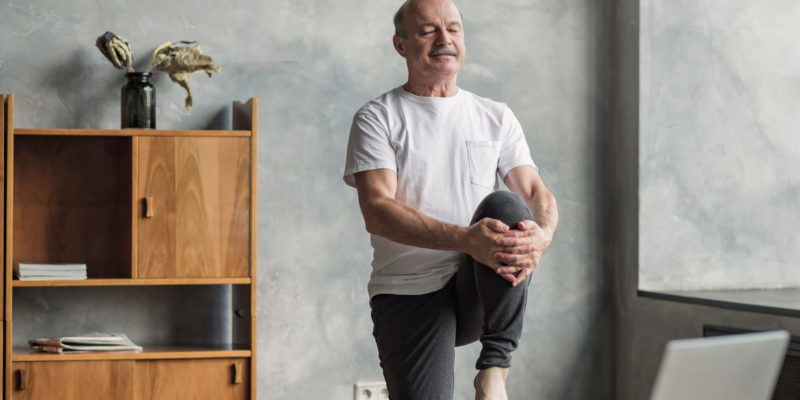
Every day in Scotland more than 30 people have a heart attack. This doesn’t stop for a pandemic. The road to recovery can take time and it’s important that the right measures are in place for support. Research shows that cardiac rehabilitation can reduce the risk of further cardiac events or being readmitted to hospital, and has a positive impact on wellbeing and quality of life.
Usually offered after an assessment following a cardiac event such as a heart attack, heart surgery or after diagnosis of some other heart conditions, traditional rehab provides information, support and advice and can help patients understand and come to terms with what has happened.
Many people may now be discharged from hospital with no assessment, reduced or even no cardiac rehab input, and limited advice about what they should be doing when they get home. NHS cardiac clinical leads expressed major concerns to us that patients being discharged without access to this life-changing support programme could be readmitted with health concerns.
Ensuring that people with heart and circulatory conditions receive the support that they need is our primary focus and so it immediately became apparent to us that we needed to join forces with NHS boards – and fast – to devise and deliver adaptable programmes to aid patients’ recovery.
Here at British Heart Foundation we contacted our partners in the clinical community and within days set up and delivered a webinar to discuss and share information on how to continue to support patients. Such was the overwhelming interest in Scotland and across the UK that more than 150 clinicians subscribed to take part. A week later, the first stage of our Cardio Rehab at Home programme launched on our website – a testament to the remarkable efforts of the clinical community and our British Heart Foundation (BHF) teams to react, collaborate and step up to provide an urgent response to an urgent situation.
Our initial offering made our popular cardiac rehab DVD available online, with a step-by-step guide. The free video features low level to moderate intensity exercises like those undertaken in a cardiac rehab class, but that are easy to do in the home. They come in five stages tailored to different patient needs, designed for those who have already had an assessment. The programme also aims to replicate the four pillars of the cardiac rehab experience by supplying the exercises, emotional support, healthy eating information and additional information all via one hub on our website.
Of course, for some, cardiac rehab can be a way of connecting with others going through similar experiences, a connection at risk of being lost in these times. Alongside our online programme, patients can be signposted to BHF peer-to-peer support groups and to our Heart Helpline. There has been an extremely positive response from both patients and clinicians to our adapted Cardiac Rehab at Home programme.
We’ve taken other steps to help patients and their families in these challenging times. As calls doubled, we expanded our Heart Helpline service, increasing the number of specialist nurses and extending our opening hours. We also understand people want access to accurate resources for their individual circumstances. Whether they have questions about being at increased risk from coronavirus, seek tips for keeping active, or want to access cardiac rehabilitation online, we’ve done our best to cover all bases on our website.
As the response to the Covid-19 outbreak develops, we’ll keep offering support to those who need it. More cardiac rehab resources will be rolled out as the situation develops and we will be updating the online programme regularly, as well as working with partners to restart services as the lock-down gradually eases. Meantime, why not check out our information and support about coronavirus and your health for people living with heart and circulatory diseases.
Richard Forsyth is Health Services Engagement Lead at British Heart Foundation Scotland
